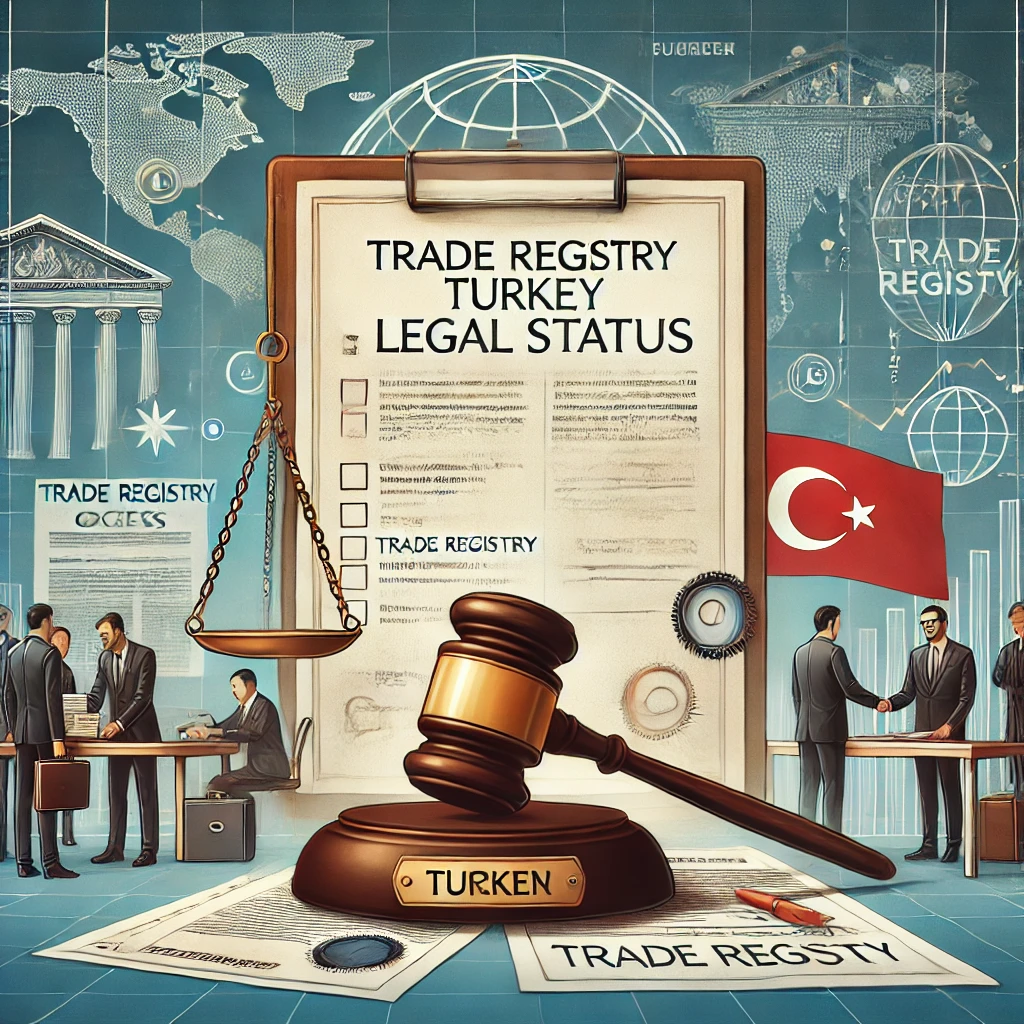Introduction
Turkey’s strategic location, bridging Europe and Asia, makes it an attractive destination for foreign companies seeking market access and investment opportunities. However, to operate legally in Turkey, foreign businesses must comply with specific legal and registration procedures under the Turkish Commercial Code (Law No. 6102) and the Trade Registry Regulations. This article explores the legal status, registration processes, and challenges that foreign companies encounter in Turkey.
1. Legal Status of Foreign Companies in Turkey
- Types of Legal Entities Available for Foreign Companies
- Limited Liability Company (LLC): A popular choice for small- and medium-sized enterprises (SMEs).
- Joint Stock Company (JSC): Preferred by larger corporations due to the ability to issue shares and raise capital.
- Branch Offices: Foreign companies can establish branch offices without creating a new legal entity, but the parent company remains liable for the branch’s activities.
- Liaison Offices: These offices are used for market research or promotional activities and cannot conduct commercial transactions.
- Legal Personality and Liability
- Once registered, foreign companies operate under the same legal framework as domestic companies, enjoying the same rights and obligations. However, liability varies depending on the company structure, such as limited liability for LLCs and unlimited liability for parent companies operating through branches.
- Compliance with Local Regulations
- Foreign companies are subject to tax laws, labor laws, and sector-specific regulations. If operating in regulated sectors (e.g., banking, insurance, or energy), companies must also obtain additional permits.
2. Trade Registry Registration Procedures
- Preliminary Preparations
- Foreign investors must obtain a Turkish tax identification number.
- The company’s name must be reserved and approved by the local Trade Registry Office (Ticaret Sicil Müdürlüğü) to ensure it complies with naming regulations.
- Required Documentation
- The following documents are typically required for company registration:
- Articles of association drafted in accordance with the Turkish Commercial Code.
- Notarized copies of passports or identification documents of the founders.
- Proof of address for the company’s headquarters.
- Board resolution (for branch offices) authorizing the establishment of the Turkish branch.
- The following documents are typically required for company registration:
- Registration at the Trade Registry Office
- Once all documents are submitted, the Trade Registry Office reviews and approves the application. Upon approval, the company is assigned a trade registry number, making it officially operational.
- Publication in the Trade Registry Gazette
- Company registration details must be published in the Trade Registry Gazette to ensure transparency. The company’s legal status becomes effective once this publication is completed.
3. Challenges in the Registration Process
- Language Barriers and Bureaucratic Requirements
- All documentation must be submitted in Turkish, and official translations may be required for foreign documents, adding time and cost to the registration process.
- Sector-Specific Approvals
- Foreign companies operating in regulated sectors must obtain permits from relevant authorities, which may delay operations.
- Complex Taxation and Compliance Issues
- Understanding Turkish tax laws and ensuring compliance with local accounting standards can be challenging for foreign companies, necessitating the use of local consultants or legal advisors.
4. Legal Remedies and Dispute Resolution
- Litigation and Arbitration
- Foreign companies have the right to pursue legal action in Turkish courts. Many companies include arbitration clauses in their contracts to avoid lengthy court procedures. Turkey is a signatory to the New York Convention, facilitating the enforcement of foreign arbitration awards.
- Protection Against Expropriation
- Turkey guarantees the protection of foreign investments through Bilateral Investment Treaties (BITs), offering remedies against unlawful expropriation or discriminatory treatment.
Conclusion
Turkey offers foreign companies a favorable legal environment with access to equal rights and protections. However, companies must navigate a complex registration process and comply with local regulations to operate smoothly. Engaging with local legal advisors and understanding tax obligations and sectoral regulations are essential for foreign businesses to succeed in Turkey. With the right guidance, foreign companies can benefit from Turkey’s strategic location and dynamic market.

Yanıt yok